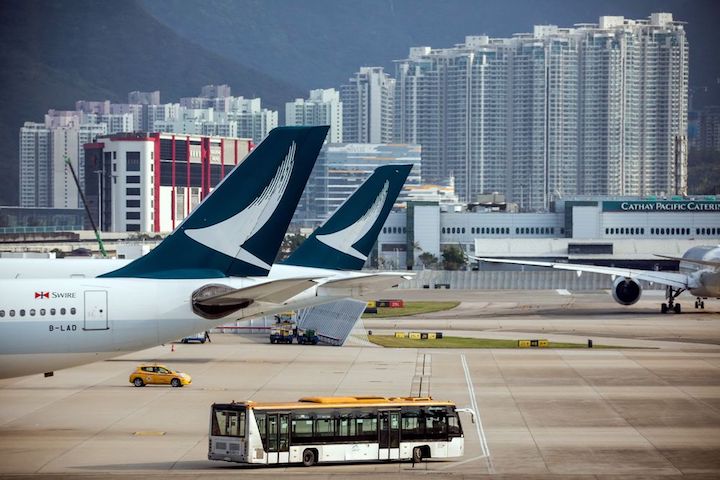Governments should roll back or refrain from using travel restrictions as the coronavirus is mainly being spread through local transmission rather than imported cases, a trade group of Asian airlines said.
“Given that the Covid-19 outbreak is now progressing across the globe, it is time for a fundamental rethink on travel restrictions,” the Association of Asia Pacific Airlines said in a statement, shortly before U.S. President Donald Trump announced a 30-day suspension of travel from continental Europe to the U.S.

The airline industry has been plunged deep into crisis as travel demand dries up and countries tighten borders. The International Air Transport Association said airlines globally could lose as much as $113 billion in passenger revenue this year. That bleak forecast came before Trump imposed restrictions on the lucrative transatlantic routes. Nearly half a million flights have been canceled this year for China alone, according to travel data company Cirium.
A Bloomberg index of Asia-Pacific airlines including the likes of Cathay Pacific Airways Ltd., Singapore Airlines Ltd. and Air China Ltd. has tumbled 23% this year to its lowest since 2014 as the virus batters the market. Qantas Airways Ltd., which is cutting almost a quarter of its international services for six months, is the worst performer on the gauge this year with a 49% slump.
“The proliferation of travel restrictions worldwide, and insufficient adherence to the IHR (International Health Regulations) are imposing enormous costs on society with little or no public health benefits,” AAPA’s Director General Andrew Herdman said in the statement.
More than 90 countries have imposed travel restrictions, but only 45 states have informed the WHO and provided public health rationale for the measures, AAPA said, citing a WHO report from March 10.
AAPA said the airline industry has been strictly adhering to WHO and IATA guidelines on hygiene, including for cleaning aircraft and lounges, and that it isn’t aware of any infections attributed to inflight transmission.
Governments should “fundamentally reconsider the rationale for such travel restrictions and measures, taking into account the disruption caused to people’s livelihoods and the negative repercussions to the wider economy,” Herdman said.








